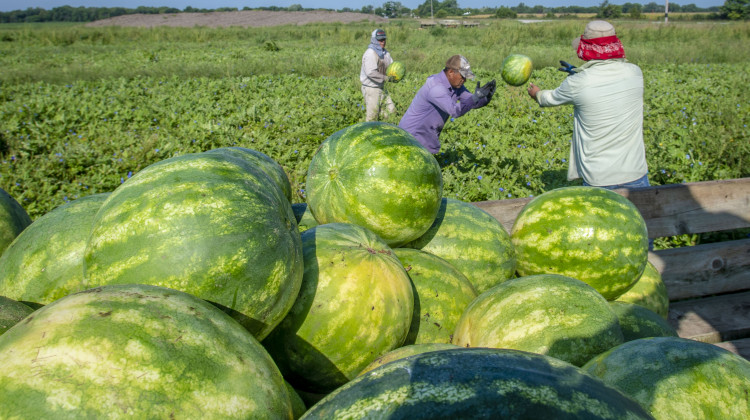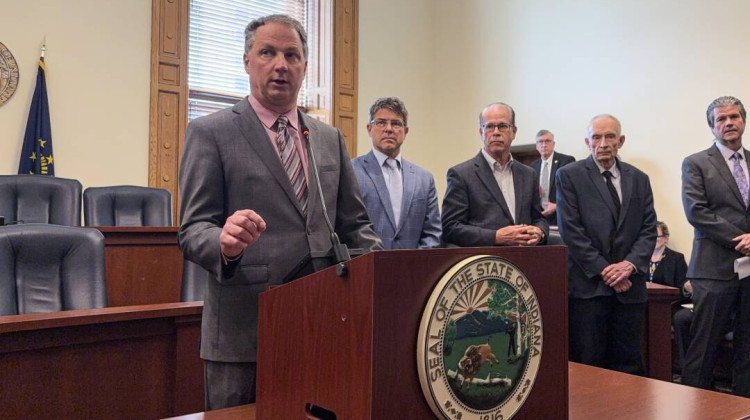Listen to a radio version of this story
Pesticide that’s applied to corn can sometimes find its way onto watermelon plants — harming pollinators that watermelons need. Purdue University researchers found reducing pesticide can increase yields for watermelon growers and would likely save both farmers money.
Applying pesticides to seeds or to a whole field might be convenient and seemingly cheap, but it harms pollinators in the area and doesn’t do much for yield. Researchers found using pesticides as-needed didn’t change corn yields and watermelon yields went up. Indiana is one of the top states for both crops.
Jacob Pecenka is a graduate student at Purdue and the lead author of the study.
“So if you reduce and only spray when you need to, the pollinators are so much happier and that can actually lead to improvements in crop yield just by those pollinators visiting much more frequently," he said.
Pecenka said his team saw more than a dozen native bees and other insects flock to the watermelon fields that had less pesticide — more than the non-native honeybees nearby.
“Really surprising that even after the first year of putting these fields in, the wild bees were doing a lot of the heavy lifting as far as pollination services," he said.
Join the conversation and sign up for the Indiana Two-Way. Text "Indiana" to 73224. Your comments and questions in response to our weekly text help us find the answers you need on statewide issues.
Pecenka said the money saved by using fewer pesticides balances out the time or money it might take for farmers to apply them more strategically on their fields. It can also encourage natural predators that control pests.
Purdue entomology professor Ian Kaplan also co-authored the study. He said people aren't always aware of sustainable farming practices outside of organic farming — but it's important that the public support these farmers as well.
"Ultimately, growers are putting their crops at risk potentially by doing this — and so the more support that can be given to encourage growers to potentially go out on a limb and take a chance," he said. "I think that's critical."
Contact reporter Rebecca at rthiele@iu.edu or follow her on Twitter at @beckythiele.
Indiana Environmental reporting is supported by the Environmental Resilience Institute, an Indiana University Grand Challenge project developing Indiana-specific projections and informed responses to problems of environmental change.
9(MDAyMzk1MzA4MDE2MjY3OTY1MjM5ZDJjYQ000))
 DONATE
DONATE







 Support WFYI. We can't do it without you.
Support WFYI. We can't do it without you.